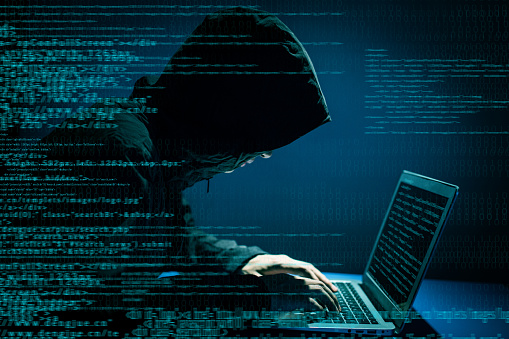Computer hacking can seriously impact businesses, both big and small. It can cause irreparable damage to a company’s reputation and finances and ultimately put the entire organization at risk. In this article, we will talk about what are the consequences of computer hacking and how we can protect computers from it. Ready to learn more? Let’s start!
Table of Contents
What Are The Consequences Of Computer Hacking
In today’s world, computer hacking has become a significant problem. Hackers can gain access to personal information, financial information, and even government secrets. The consequences of computer hacking can be devastating. Identity theft, financial crimes, and even national security breaches are all possible outcomes of computer hacking. Here are some consequences of computer hacking:
Destroys data and disrupts services
Computer hacking can cause irreparable damage to data and systems. Data corruption, system crashes, and missed deadlines are all possible outcomes of computer hacking. In some cases, hackers can even delete data or useless files entirely. This can have a serious impact on businesses in both the short and long term.
Exaggerations personal safety
Computer hacking can also put individuals at risk of harm. Hackers may be able to access confidential information or sensitive files that you could use to injure or blackmail someone. They could also experience financial losses as a result of their attack, which could make them targets for
Jeopardizes safety
Hackers can also jeopardize the safety of individuals and organizations. They may be able to gain access to confidential information or sensitive systems, which you could use for criminal purposes. In extreme cases, hackers could even attack key infrastructure systems, leading to widespread chaos and potentially severe consequences.
Increase costs and strains resources
Computer hacking can increase costs by increasing the security required in corporate environments. It can also lead to missed deadlines as businesses scramble to restore services after a hacker attack. This can strain both Human Resources and Financial Resources, ultimately costing companies money in the long term.
Undermines privacy
Computer hacking can also undermine personal privacy. Hackers may be able to access personal information or private files that you could use to embarrass or intimidate someone. This cybercrime is particularly harmful because it can have a lasting psychological impact.
Wastes resources
Computer hacking can also cause significant waste. Hackers may be able to access valuable information or data that could be used for their gain, but they often neglect to secure this information properly. This can result in lost revenue and wasted resources, which is a major drain on businesses of all sizes.
Causes financial damage
Hackers can also cause financial damage to businesses. They may be able to steal confidential information or exploit security vulnerabilities to gain access to funds or sensitive data. This attack can have serious consequences for a company’s bottom line, and it can heavily burden its resources until the problem is resolved.
Legal penalties
Computer hacking can carry legal penalties, including jail time and fines. If personal information is compromised due to a cyberattack, the perpetrator may be held legally responsible for any damage they did.
There are many risks associated with computer hacking, and it’s essential to understand them to safeguard your business from these threats.
Ways To Prevent Computer Hacking?
Computers are a big part of our lives. We use them for work, school, and entertainment. Unfortunately, they are also a target for hackers. Hackers are people who use computers to get unauthorized access to information or systems. They can do this by stealing passwords, infecting computers with viruses, or exploiting security holes. There are ways to prevent computer hacking, though. Such as:
Install security software
Security software can help protect your computer from viruses, spyware, and other types of malware. It can also help you protect your passwords and additional personal information.
Keep up with updates
Ensure you’re always using the latest programs and software versions. This will keep your computers safe from security threats and potential hacker attacks.
Use strong passwords
Choose a password that is difficult to guess but easy to remember. Make sure it is at least eight characters long, contains some random letters and numbers, and does not include any easily guessed words or phrases (like your name or address).
Avoid clicking on links in emails
If an email contains a link, don’t click it. Instead, save the email to your computer for future reference. It’s easier to remember where you saved something than it is to type out a full URL.
Remember that passwords are personal information! Please don’t share them with anyone, and make sure they’re not stored anywhere easily accessible (like on your desk at work).
Be alert to phishing scams
Phishing is a scam in which criminals try to trick you into revealing your personal information (like your passwords or credit cards). Be especially careful about emails that ask for your help with something important, like setting up new computer security software. If it seems too good to be true, it probably is!
Should I report a cybercrime to the police?
There is no one right answer to this question. Some people may choose to report a cybercrime to the police if they feel that their personal information has been stolen or if there is evidence of criminal activity taking place. Others may prefer handling it themselves through security software or contacting their banks and credit card companies directly. Ultimately, it would help if you decided what feels most comfortable for you and your family.
Conclusion
In summary, here’s all about what are the consequences of computer hacking. Computer hacking can seriously affect your personal information, online security, and even physical safety. Be sure to take steps to protect yourself from cybercrime by using safe websites and passwords, being aware of phishing scams, and reporting any suspicious activity to the police.










